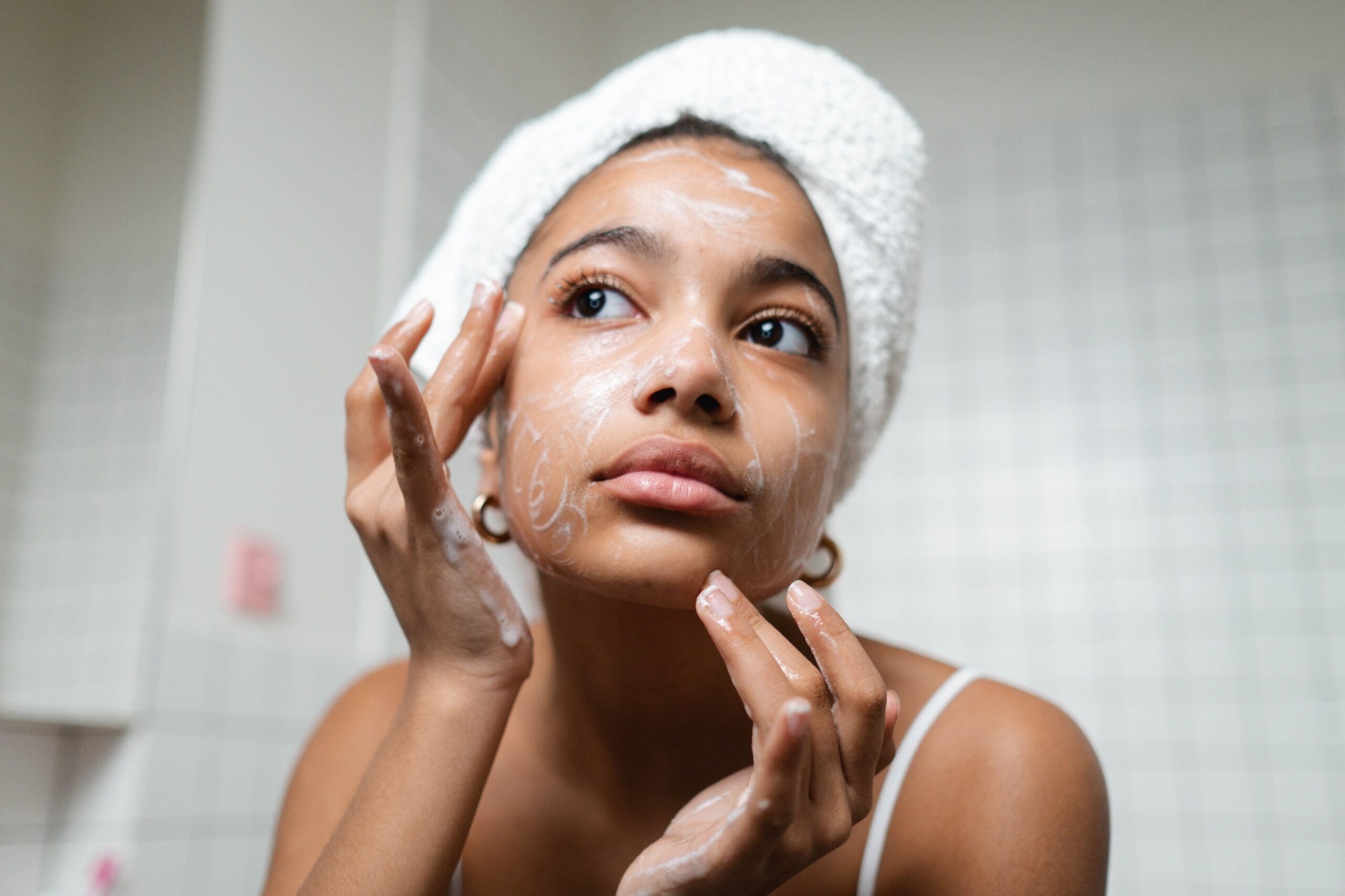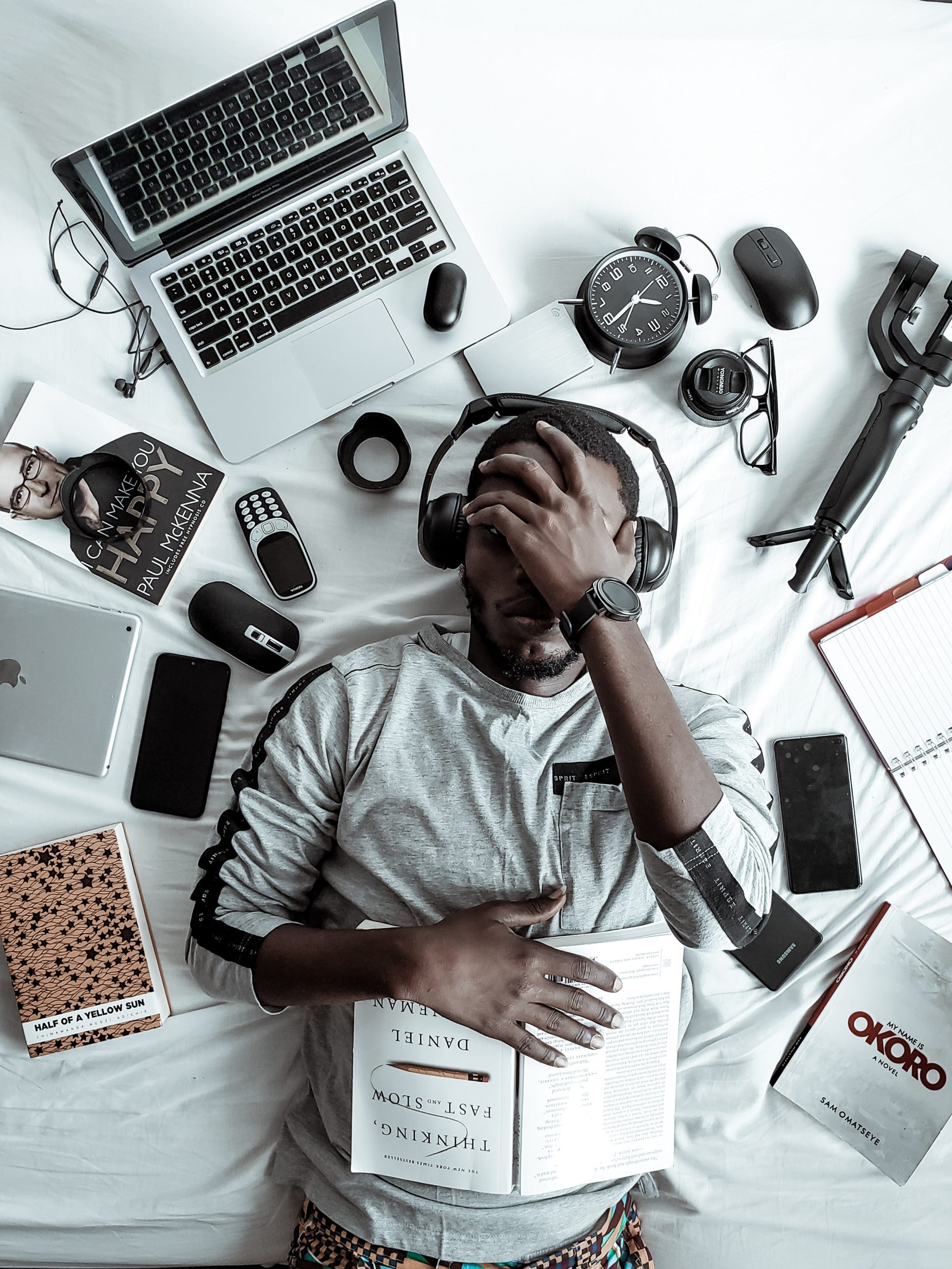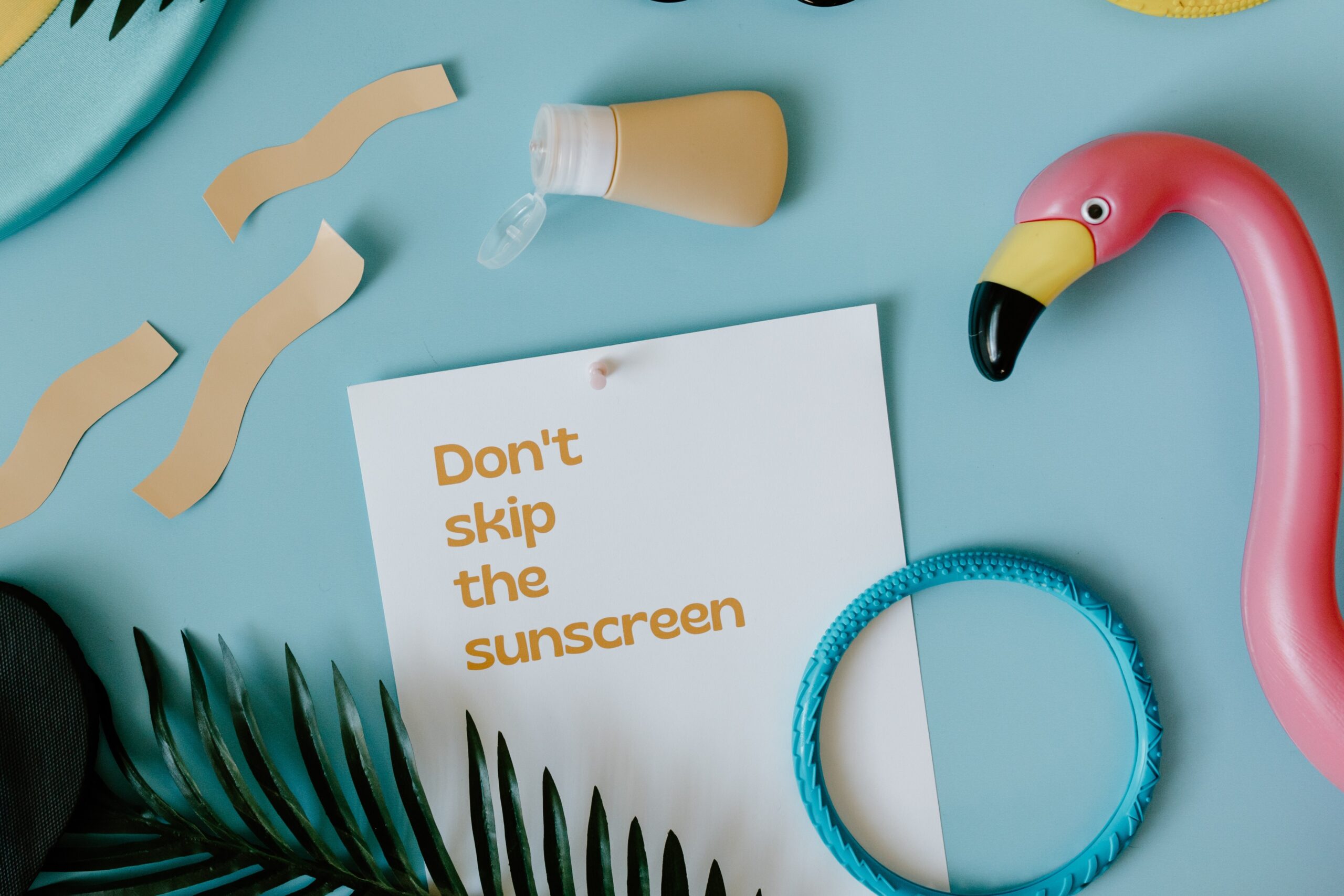
You would agree with me that an average individual’s (including our parents. Don’t let them deceive you…Lol) screen hours would have almost tripled, in the last seven weeks. This situation of lockdown/ restricted movement has forced everyone and everything to be online, making us spend more time with our mobile phones, tablets and computers.
In the midst of all the advantages that come with this (are there? Lol), there is something you should definitely consider before you continue your social media and movie schedule. It is the effect of these long hours on your skin.
Most people probably know the effect of long screen hours on their eyes from experience, because the eyes always respond and you can feel the discomfort when the eyes are strained. But what happens when the response is a silent and gradual one, like what the skin gives? What do you do? When would you notice its response? How does it happen? Is your ‘skin goals’ about to be jeopardized? As your skin fairy godmother, I’d tell you all you need to know about it.
What Is Blue Light?
Because there is no need to bore ourselves with the science of how rays of light works, blue light is simply one of the colours of the light spectrum that can be seen by the human eyes. It is emitted from different sources all around us.
Before the advanced use of technology, it was emitted just from the Sunlight. However, the current use of technology in homes all around has increased the sources of blue light to include smartphones, tablets and computer monitor screens and other digital screens, which have now become major parts of our day to day activities.
Although blue light is not entirely bad for humans, as it helps to regulate the circadian rhythm of the human body and maintains a healthy sleeping cycle, when there is a continuous exposure of the human body to it over a short-range, it is an invitation to danger. And this is where the skin is affected.
Although research is still ongoing as to the full effects of blue light on your skin, one major effect that has been discovered is that continuous exposure of your skin to blue light would lead to its premature ageing. This is because blue light, just like ultraviolet rays, penetrates deep into the skin and damages proteins that are essential to skin health, which leads to wrinkles and a loss of firmness in the skin.
Continuous exposure of the skin to blue light can also lead to pigmentation and dark spots. All these my dears are not what healthy skin looks like.
Because I care about you and your skin health, and I don’t want anyone thinking a young person like you is already a grandma or grandpa, here are some things you could do to prevent your skin from ageing as a result of continuous exposure to blue light.
How To Protect Your Skin From Side Effects Of Blue Light From Screens
1. Practice Social Disatancing With Your Gadgets:
Calm down, hold on, and keep reading. I understand that your gadgets have probably been your best companions since the lockdown started. And telling you to also start distancing yourself from them is like telling a camel to go through the eye of a needle.
But, by social distancing, I mean a more cautious and regulated use of your gadgets. You can start by checking your phone or device to see if it comes with a setting that allows you to disable the blue light and replace it with a ‘night mode’ or ‘night shift’. If your device has this, it would be a big plus and your skin would be super grateful.
Another thing you should do in practising social distancing with your gadgets is to reduce the hours you spend on them at night. The exposure of the skin to blue light at night is more dangerous and harmful to the skin, than when it is exposed to it during the day. This is because repair and regeneration of skin cells are biologically scheduled to take place at night. Therefore, exposing your skin to blue light at night would hinder this process and when this continues over a long period of time, the result would be a completely unhealthy skin.
So instead of scheduling your activities for the day in a way that you end up watching movies late into the night, why not replace your night activities with non-digital related activities, or better still, Sleep! Your skin and body, generally, prefer that to watching movies at night. And if you are lucky enough to have a ‘night mode’ option on your device, then good for you. Make sure to use it all day long. You should still, however, regulate your screen hours.
2. Include Anti- Ageing Products In Your Skincare Routine
Another way you could maintain your ‘Forever 21’ kind of skin while having to stare at your digital screens for long hours is by including anti-ageing products in your skincare routine.
Antioxidants are excellent when it comes to protecting your skin from ageing as a result of exposure to blue light. The skin naturally contains Vitamin E that defends it from damage by harmful toxins or substances. However, when exposed to blue light over a continuous period of time, it gets used up.
Therefore, the use of antioxidants rich in Vitamin E as part of your skincare routine would serve as a supplement for your skin, and ensures that your skin maintains its firmness and glow. In a time like this, don’t let your effort be like pouring water inside a basket. Prioritize giving your skin enough antioxidant while keeping up with other good skincare habits.
Don’t forget that this also includes feeding well. Your skin is a reflection of what you eat. Hence, eat food rich in vitamins, especially in vitamin E, like almonds, avocados, spinach etc.
Cheers to a forever-young skin.
Xoxo!


 Previous Post
Previous Post


